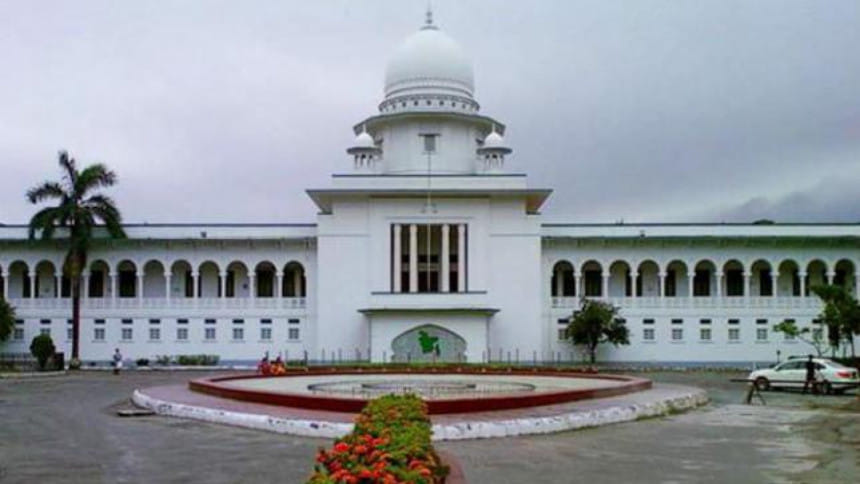If ACC doesn't work on its own, all will have to beg: HC

The High Court, in an observation, today said that the Anti-Corruption Commission is an independent organisation and if it works independently, the country’s growth will be steady.
But if the ACC fails to do so, everyone will have to be on the streets to beg, the High Court said.
The High Court bench of Justice FRM Nazmul Ahsan and Justice KM Kamrul Kader made the observations while recording the statement of ACC officials on the issue of wrong person being in jail for 3years.
Advocate Khurshid Alam Khan was representing ACC in the hearing and Advocate Amit Das Gupta appeared for Jaha Alam.
In the hearing, Advocate Khurshid Alam Khan told the court that it was the government lawyers’ mistake to file the cases against Jaha Alam.
The High Court today directed the jail authorities to release Jaha Alam who was in jail for the last three years instead of the real accused in 26 corruption cases.
The court passed the order after the director general of the Anti-Corruption Commission (ACC), plaintiff of the cases and two other government officials appeared before it.
HOW DID JAHA ALAM LAND IN JAIL?
Between 2010 and 2011, Abu Salek, a businessman, misappropriated about Tk 18 crore from Sonali Bank's Cantonment branch. Salek used a fake address to open an account with the bank, the ACC said.
Salek also had an account in another private bank, ACC sources said.
In 2012, the anti-graft watchdog filed the 33 cases over the misappropriation, and Salek was made accused in most of them.
During investigation, the commission asked the banks' officials to identify and trace Salek.
The officials informed the ACC that the address provided by Salek in his bank documents was in Tangail's Nagarpur, ACC sources said.
The commission then summoned Salek to its office where the bank officials, including the account's introducers, were present.
However, the man who appeared before the ACC claimed that the authorities concerned were mistaken and his name was Jaha Alam, not Abu Salek.
“To ascertain further, we sent the photo that Salek used in the bank's Know-Your-Client form to Nagarpur's Union Parishad chairman, who identified him as Jaha Alam,” said an investigation officer preferring anonymity.
Later, the ACC placed a charge-sheet before the court identifying him as Abu Salek alias Jaha Alam.
In 2016, Alam was arrested by police in connection with most of the cases in which Salek was accused.
HOW WAS JAHA ALAM'S IDENTITY KNOWN FINALLY?
Different media outlets reported that Jaha Alam said he was wrongly accused, after which the ACC investigated the matter further.
The commission found Alam's claim to be true.
Contacted, ACC Director General Moyeedul Islam said of the 33 cases, Alam was made accused in most of them.
“We have already urged the court to exempt Jaha Alam from prosecution,” he said, adding that the process was underway.
He, however, said Salek, who was on the run, would remain as the accused in the cases.
On January 28, the HC bench passed the order in a suo moto move following a report published in the Bangla daily Prothom Alo on the day under the headline “Wrong accused in jail in 33 cases: Sir, I am Jaha Alam, not Salek.”
Supreme Court lawyer Amit Das Gupta placed the news report before the HC bench for necessary orders in this regard.
HC judges issued the summons after going through the report.
The court also gave a rule asking the authorities concerned to explain why Jaha Alam should not be acquitted of the cases in which he was not an accused, Amit told The Daily Star.
Ealier, the DG of the ACC said that the faces of Abu Salek and Jaha Alam, according to the photograph, were similar.

 For all latest news, follow The Daily Star's Google News channel.
For all latest news, follow The Daily Star's Google News channel. 









Comments